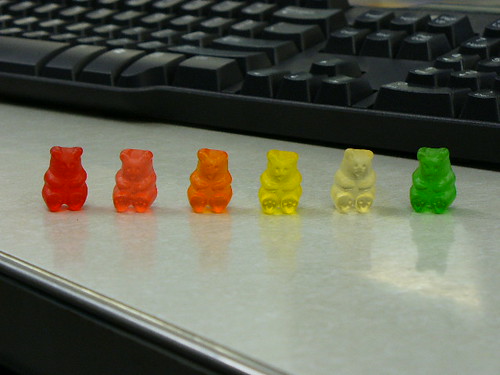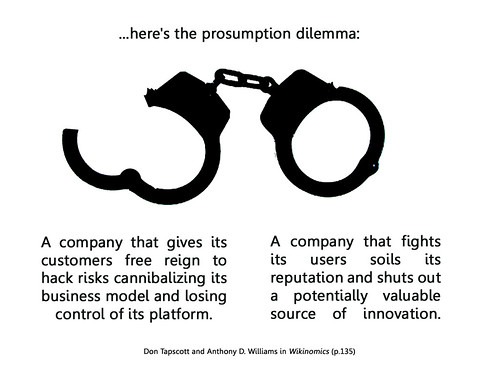Once mobile internet gets properly off the ground, lots of shopping in the real world will change. It will change because prices and reviews - things normally all the way back at home - will suddenly be at your fingertips in stores. The buying decision is going to get another brain contributing.
But reviews have their problems.
Say I am swotting up on a new book I have heard is rather tasty or investigating a new camera so I don't have to mashup (read, lazily appropriate) others' photos on Flickr. I read a load of book reviews on various sites. For the camera, I come up against some sites wanting my money for their opinions, others with more reviews than I can possibly read and perhaps a couple of blog posts from some real keenos.

Here's my beef with all of this.

'Old' media stuff is dense and long but trustworthy and rich. It's also one person's view normally.

Customer reviews are helpful because they are likely to tell it like it is; they have no reason not to. Except some people can't tell it like it is even if they want to, making a chunk of customer reviews unhelpful by being unreadable, like
this beauty from the BBC's gleefully entertaining
Have Your Say (
distilled here).

And even when people can get their thoughts in order, how do you know that what they like you are going to like? So you look at quite a few of these, try to average across opinion. That's a bit time-consuming. One quick way to do this is to look at things like the 5 stars on Amazon.

This is beautifully quick but often rather unhelpful: it doesn't tell you all that much. Added to that, fans swarm in and leave in their slaver pages of universally positive reviews. In its most extreme form this sort of review takes binary form.: thumbs up or down, cool or not, rotten or fresh. Essentially, the problem with taking lots of data and reducing them, is that it can only provide a dirty average.

Basically, the problems of reviews are that we have work hard to find them, when we do there is too much information overall and there is a poor summary of it. We need something that combines the best bits. Basically, something that is quick but rich:
So all the power of collaboration is used. All the time spent reading and cogitating is stripped away. The in-depth, expert stuff is there if you want it. And, most importantly, the reviews become a whole lot more powerful by taking into account who has left them.
This has probably been thought up somewhere before. All the same, I don't see this kind of thing anywhere. And it is the perfect sort of review system for mobile: lightweight, powerful, visual, personalised and genuinely useful.















